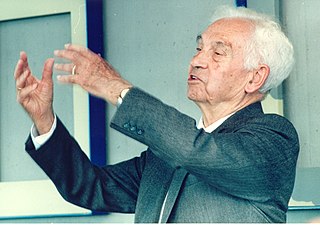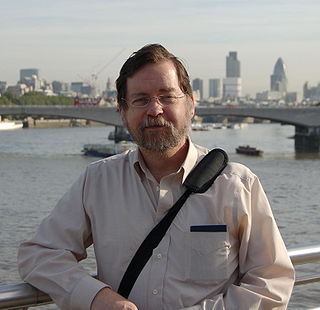
Darwinism is a theory of biological evolution developed by the English naturalist Charles Darwin (1809–1882) and others, stating that all species of organisms arise and develop through the natural selection of small, inherited variations that increase the individual's ability to compete, survive, and reproduce. Also called Darwinian theory, it originally included the broad concepts of transmutation of species or of evolution which gained general scientific acceptance after Darwin published On the Origin of Species in 1859, including concepts which predated Darwin's theories. It subsequently referred to the specific concepts of natural selection, the Weismann barrier, or the central dogma of molecular biology. Though the term usually refers strictly to biological evolution, creationists have appropriated it to refer to the origin of life, and it has even been applied to concepts of cosmic evolution, both of which have no connection to Darwin's work. It is therefore considered the belief and acceptance of Darwin's and of his predecessors' work—in place of other theories, including divine design and extraterrestrial origins.
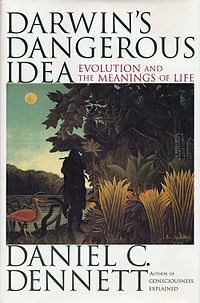
Darwin's Dangerous Idea: Evolution and the Meanings of Life is a 1995 book by Daniel Dennett, in which the author looks at some of the repercussions of Darwinian theory. The crux of the argument is that, whether or not Darwin's theories are overturned, there is no going back from the dangerous idea that design might not need a designer. Dennett makes this case on the basis that natural selection is a blind process, which is nevertheless sufficiently powerful to explain the evolution of life. Darwin's discovery was that the generation of life worked algorithmically, that processes behind it work in such a way that given these processes the results that they tend toward must be so.
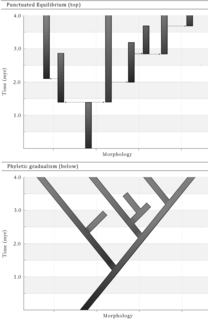
Punctuated equilibrium is a theory in evolutionary biology which proposes that once species appear in the fossil record the population will become stable, showing little evolutionary change for most of its geological history. This state of little or no morphological change is called stasis. When significant evolutionary change occurs, the theory proposes that it is generally restricted to rare and geologically rapid events of branching speciation called cladogenesis. Cladogenesis is the process by which a species splits into two distinct species, rather than one species gradually transforming into another.
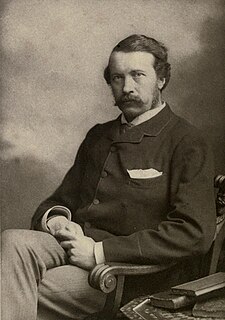
Neo-Darwinism is the interpretation of Darwinian evolution through natural selection as it has variously been modified since it was first proposed. It was early on used to name Charles Darwin's ideas of natural selection separated from his hypothesis of pangenesis as a Lamarckian source of variation involving blending inheritance.

The modern synthesis was the early 20th-century synthesis reconciling Charles Darwin's theory of evolution and Gregor Mendel's ideas on heredity in a joint mathematical framework. Julian Huxley coined the term in his 1942 book, Evolution: The Modern Synthesis.

Orthogenesis, also known as orthogenetic evolution, progressive evolution, evolutionary progress, or progressionism, is the biological hypothesis that organisms have an innate tendency to evolve in a definite direction towards some goal (teleology) due to some internal mechanism or "driving force". According to the theory, the largest-scale trends in evolution have an absolute goal such as increasing biological complexity. Prominent historical figures who have championed some form of evolutionary progress include Jean-Baptiste Lamarck, Pierre Teilhard de Chardin, and Henri Bergson.
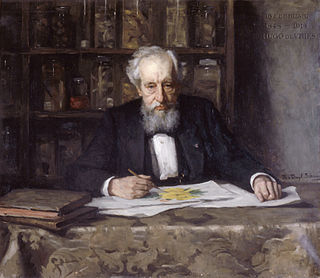
Mutationism is one of several alternatives to evolution by natural selection that have existed both before and after the publication of Charles Darwin's 1859 book, On the Origin of Species. In the theory, mutation was the source of novelty, creating new forms and new species, potentially instantaneously, in sudden jumps. This was envisaged as driving evolution, which was thought to be limited by the supply of mutations.
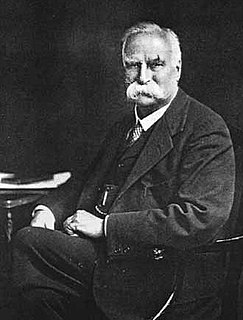
Sir Edward Bagnall Poulton, FRS HFRSE FLS was a British evolutionary biologist who was a lifelong advocate of natural selection through a period in which many scientists such as Reginald Punnett doubted its importance. He invented the term sympatric for evolution of species in the same place, and in his book The Colours of Animals (1890) was the first to recognise frequency-dependent selection.
Darwinism: An Exposition of the Theory of Natural Selection with Some of Its Applications is an 1889 book on biological evolution by Alfred Russel Wallace, the co-discoverer of evolution by natural selection together with Charles Darwin. This was a book Wallace wrote as a defensive response to the scientific critics of natural selection. Of all Wallace's books, it is cited by scholarly publications the most.
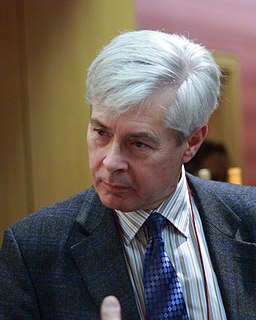
Peter J. Bowler is a historian of biology who has written extensively on the history of evolutionary thought, the history of the environmental sciences, and on the history of genetics. His 1984 book, Evolution: The History of an Idea is a standard textbook on the history of evolution; a 25th anniversary edition came in 2009. His 1983 book The Eclipse of Darwinism: Anti-Darwinian Evolution Theories in the Decades Around 1900 describes the scientific predominance of other evolutionary theories which led many to minimise the significance of natural selection, in the first part of the twentieth century before genetics was reconciled with natural selection in the modern synthesis.

Ontogeny and Phylogeny is a 1977 book on evolution by Stephen Jay Gould, in which the author explores the relationship between embryonic development (ontogeny) and biological evolution (phylogeny). Unlike his many popular books of essays, it was a technical book, and over the following decades it was influential in stimulating research into heterochrony, changes in the timing of embryonic development, which had been neglected since Ernst Haeckel's theory that ontogeny recapitulates phylogeny had been largely discredited.

Moritz Wagner was a German explorer, collector, geographer and natural historian. Wagner devoted three years (1836–1839) to the exploration of Algiers: it was here that he made important observations in natural history, which he later supplemented and developed: that geographical isolation could play a key role in speciation.
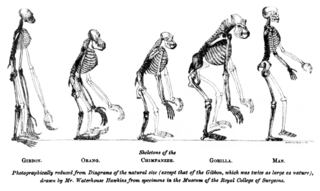
Julian Huxley used the phrase “the eclipse of Darwinism” to describe the state of affairs prior to what he called the modern synthesis, when evolution was widely accepted in scientific circles but relatively few biologists believed that natural selection was its primary mechanism. Historians of science such as Peter J. Bowler have used the same phrase as a label for the period within the history of evolutionary thought from the 1880s to around 1920, when alternatives to natural selection were developed and explored—as many biologists considered natural selection to have been a wrong guess on Charles Darwin's part, or at least as of relatively minor importance. An alternative term, the interphase of Darwinism, has been proposed to avoid the largely incorrect implication that the putative eclipse was preceded by a period of vigorous Darwinian research.

Universal Darwinism refers to a variety of approaches that extend the theory of Darwinism beyond its original domain of biological evolution on Earth. Universal Darwinism aims to formulate a generalized version of the mechanisms of variation, selection and heredity proposed by Charles Darwin, so that they can apply to explain evolution in a wide variety of other domains, including psychology, economics, culture, medicine, computer science and physics.
No Struggle for Existence, No Natural Selection: A Critical Examination of the Fundamental Principles of the Darwinian Theory is a 1908 book by George Paulin.
Evolution Without Evidence: Charles Darwin and "The Origin of Species" is a 1982 book by historian Barry G. Gale.

Teleology in biology is the use of the language of goal-directedness in accounts of evolutionary adaptation, which some biologists and philosophers of science find problematic. The term teleonomy has also been proposed. Before Darwin, organisms were seen as existing because God had designed and created them; their features such as eyes were taken by natural theology to have been made to enable them to carry out their functions, such as seeing. Evolutionary biologists often use similar teleological formulations that invoke purpose, but these imply natural selection rather than actual goals, whether conscious or not. Dissenting biologists and religious thinkers held that evolution itself was somehow goal-directed (orthogenesis), and in vitalist versions, driven by a purposeful life force. Since such views are now discredited, with evolution working by natural selection acting on inherited variation, the use of teleology in biology has attracted criticism, and attempts have been made to teach students to avoid teleological language.

The scientific study of speciation — how species evolve to become new species — began around the time of Charles Darwin in the middle of the 19th century. Many naturalists at the time recognized the relationship between biogeography and the evolution of species. The 20th century saw the growth of the field of speciation, with major contributors such as Ernst Mayr researching and documenting species' geographic patterns and relationships. The field grew in prominence with the modern evolutionary synthesis in the early part of that century. Since then, research on speciation has expanded immensely.



